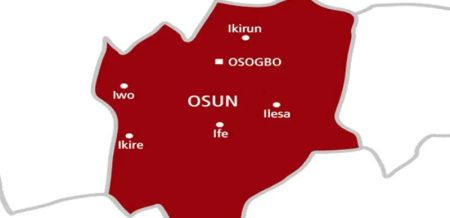Nigeria is actively pursuing a ¥15 billion (approximately $110 million) emergency loan from the Japan International Cooperation Agency (JICA) to bolster its food security framework. Recent high-level discussions between Finance Minister Wale Edun, Agriculture Minister Abubakar Kyari, and JICA representatives underscore the government’s commitment to expediting the loan’s implementation. The loan is intended to fortify Nigeria’s food production systems, enhance resilience against global supply disruptions, and mitigate the impact of domestic inflationary pressures. Recognizing the urgency imposed by the ongoing rainy season, both ministers stressed the need for swift and coordinated action to ensure timely support reaches farmers and rural communities. While JICA has reaffirmed its commitment to the program, it has requested formal clarification regarding proposed adjustments to the implementation plan. An agreement was reached to proceed immediately with core production activities under the existing framework, while aspects like aggregation and financing will undergo review in accordance with the original loan terms.
This loan pursuit comes on the heels of President Bola Tinubu’s request to the National Assembly for approval of a substantial $21.5 billion external borrowing plan under the 2025-2026 borrowing framework. In addition to this substantial request, the President also seeks legislative approval for the aforementioned ¥15 billion loan from JICA and a €51 million grant. These financial resources are earmarked for crucial development initiatives, including job creation, skills development, entrepreneurship promotion, poverty reduction, and, significantly, enhancing food security. This multifaceted approach reflects the government’s recognition of the interconnectedness of these challenges and the need for a comprehensive strategy to address them.
The urgency surrounding this loan underscores the critical state of food security in Nigeria. The country faces numerous challenges, including climate change impacts, insecurity in food-producing regions, and global supply chain disruptions. These factors have contributed to rising food prices and increased hardship for vulnerable populations. The loan from JICA, therefore, represents a vital intervention to strengthen the agricultural sector, boost domestic food production, and improve the resilience of Nigeria’s food systems. The government’s commitment to expedited implementation reflects an understanding of the pressing need to address these challenges and mitigate their impact on the Nigerian populace.
The collaboration with JICA reflects a broader strategy of engaging international partners to support Nigeria’s development agenda. JICA, as Japan’s primary development assistance agency, has a long history of supporting developing countries, including Nigeria, in various sectors such as agriculture, infrastructure, and health. This partnership aligns with JICA’s focus on promoting sustainable development and building resilient societies. The loan for food security is not merely a financial transaction, but a collaborative effort aimed at strengthening Nigeria’s capacity to address a fundamental challenge to its development.
Nigeria’s existing debt to JICA stands at $53.31 million, representing a small fraction of its overall external debt. The new $110 million loan, if approved, will significantly increase this amount to $163.31 million. While this represents a substantial increase, it is crucial to consider the potential long-term benefits of the investment. By strengthening food security, the loan can contribute to economic stability, poverty reduction, and improved social well-being. These positive outcomes can outweigh the costs of borrowing in the long run, provided the funds are utilized effectively and transparently.
The government’s emphasis on transparency and accountability in the implementation of this loan will be crucial to its success. Clear mechanisms for monitoring and evaluation will be necessary to ensure that the funds are utilized effectively and achieve the intended outcomes. Public engagement and participation will also be vital to ensure that the program is responsive to the needs of the communities it aims to serve. By prioritizing transparency and accountability, the government can build public trust and ensure that the loan delivers tangible benefits to the Nigerian people.














